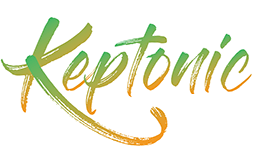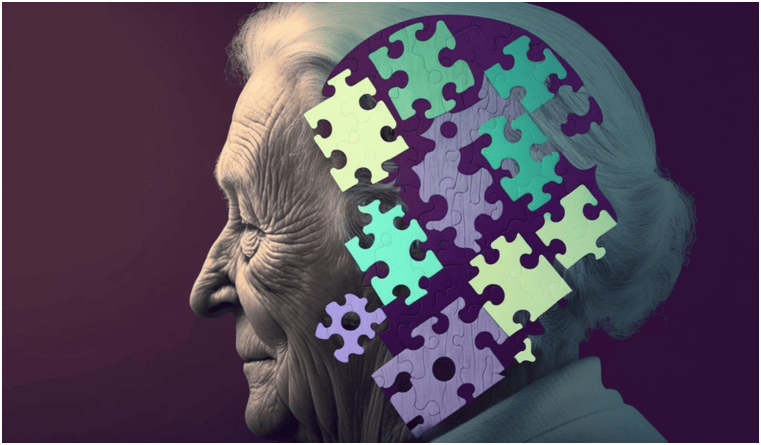In the evolving narrative of human health, Alzheimer’s stands out as a poignant reminder of the fragility of the human mind. It’s not just about forgetfulness; it’s about the potential erosion of lifetimes of memories, connections, and experiences. Yet, as daunting as the disease sounds, modern research makes us hopeful. The brain, like any other part of the body, requires nurturing. And there are specific, tangible actions we can take to fortify its defenses against Alzheimer’s.
Top 10 Strategies to Combat Alzheimer’s as You Age
Aging gracefully is a desire we all share; a significant part is maintaining our cognitive abilities. As the fear of Alzheimer’s looms large for many, it’s essential to recognize that proactive steps can be taken to mitigate its risks. Armed with knowledge, dedication, and the right strategies, we can bolster our brain’s defenses, ensuring our golden years are filled with clarity and cherished memories. Dive into these top 10 strategies to combat Alzheimer’s and empower you to age confidently and mentally.
These strategies are not mere hypotheses; they’re rooted in rigorous science and research. As we delve deeper into each, you’ll discover how, with the right approach, your golden years can shine with golden and platinum memories.
⦁ Reducing Inflammation in the Brain & Supporting Energy
Chronic inflammation is often called the ‘silent killer’ because of its dangerous nature. When it comes to the brain, inflammation can be particularly detrimental, leading to a cascade of issues, with Alzheimer’s being a prominent concern. But what causes this inflammation? The culprits are many: poor diet, stress, lack of exercise, and environmental toxins. By targeting these triggers, we can significantly dampen the inflammatory response. Foods rich in antioxidants, such as berries and green leafy vegetables, play a pivotal role in this battle. Omega-3 fatty acids, primarily found in fish like salmon, are also powerful anti-inflammatory agents. Moreover, supporting brain energy is paramount. Mitochondria, the energy powerhouses of our cells, require consistent nourishment. CoQ10, a compound in meats and spinach, can boost mitochondrial function. By focusing on reducing inflammation and energizing the brain, we’re setting a strong foundation for cognitive longevity.
⦁ Reducing Inflammation in the Brain & Supporting Energy
Chronic inflammation is often called the ‘silent killer’ because of its dangerous nature. When it comes to the brain, inflammation can be particularly detrimental, leading to a cascade of issues, with Alzheimer’s being a prominent concern. But what causes this inflammation? The culprits are many: poor diet, stress, lack of exercise, and environmental toxins. By targeting these triggers, we can significantly dampen the inflammatory response. Foods rich in antioxidants, such as berries and green leafy vegetables, play a pivotal role in this battle. Omega-3 fatty acids, primarily found in fish like salmon, are also powerful anti-inflammatory agents. Moreover, supporting brain energy is paramount. Mitochondria, the energy powerhouses of our cells, require consistent nourishment. CoQ10, a compound in meats and spinach, can boost mitochondrial function. By focusing on reducing inflammation and energizing the brain, we’re setting a strong foundation for cognitive longevity.
⦁ Avoid Grains, Dairy, Preservatives, and Chemicals in Food
The saying “you are what you eat” resonates deeply when discussing brain health. Modern diets, often replete with processed foods, can be a minefield for those wanting to protect their cognitive faculties. Grains, especially refined ones, can cause spikes in blood sugar, leading to insulin resistance, a factor linked to Alzheimer’s. While beneficial for some, dairy can cause inflammatory reactions in certain individuals, potentially exacerbating brain inflammation. The most insidious culprits, however, are preservatives and chemicals in food. Artificial additives, colorings, and certain emulsifiers have been shown to disrupt gut health, which, in turn, can negatively impact brain function. The gut-brain axis is a vital communication highway, and any disturbances in the gut can resonate within the brain. Prioritizing organic, whole foods and diligently reading food labels can guide one away from these hazards. By eliminating or reducing the intake of these triggers, we pave the way for a cleaner, healthier, and more resilient brain.
⦁ Destressing
Prolonged stress results in elevated cortisol levels, which, over time, can damage the hippocampus, the brain’s memory center. But beyond the physiological, stress clouds judgment, impairs decision-making, and hastens mental fatigue. Integrating regular relaxation and mindfulness practices, like meditation and deep breathing exercises, can be immensely beneficial to combat this. Additionally, hobbies, nature walks, and even simple breaks during a hectic day can be mini-escapes from the grip of stress. Maintaining strong social connections and seeking support when overwhelmed are also vital. Remember, a calm mind is not just a more practical mind but a healthier one. In the journey of combating Alzheimer’s, achieving and maintaining mental peace is a step of paramount importance.
⦁ Detoxing
The term “detox” often conjures images of green juices and fasting, but in essence, detoxification is about supporting the body’s natural processes to eliminate toxins and harmful compounds. Over time, environmental pollutants, heavy metals, and certain chemicals can accumulate in our systems, potentially impairing cognitive function and overall health. Detoxing aids in flushing these out, ensuring cleaner blood flow to the brain and reducing the inflammatory response. Drinking ample water, consuming fiber-rich foods to support digestion, and including liver-supportive foods like beets, garlic, and leafy greens can aid in this cleansing process. In addition, regular sweat sessions through exercise or saunas can help excrete toxins through the skin. While detoxing offers numerous benefits, it’s crucial to approach it with balance and moderation. Extreme or prolonged detox regimes can be counterproductive. Listening to one’s body and consulting healthcare professionals ensures a safe and effective detox journey, ultimately benefiting brain health.
⦁ Stay Socially Active and Engaged
Humans are inherently social beings. Engaging with others isn’t just enjoyable—it’s essential for our cognitive health. Regular social interactions stimulate the brain, enhance emotional well-being, and even reduce the risk of Alzheimer’s. Activities like joining clubs, attending workshops, or simply catching up with friends keep the mind sharp. They challenge us to think, respond, and adapt. Moreover, meaningful connections offer emotional support, providing a buffer against stress and loneliness, both of which can accelerate cognitive decline. Even online communities and virtual meet-ups can serve this purpose in the digital age. However, nothing can truly replace the warmth of face-to-face interactions. By staying socially active and fostering solid interpersonal relationships, we enrich our lives and ensure our brains remain vibrant and agile as we age.
Conclusion
By engaging in brain-stimulating activities, adopting a heart-healthy diet, and nurturing social connections, we can fortify our defenses against cognitive decline. It’s essential to remember that every choice, no matter how small, casts a ripple in the pond of our mental well-being. As we age, let’s strive for longevity and a life filled with clarity, purpose, and treasured recollections.








